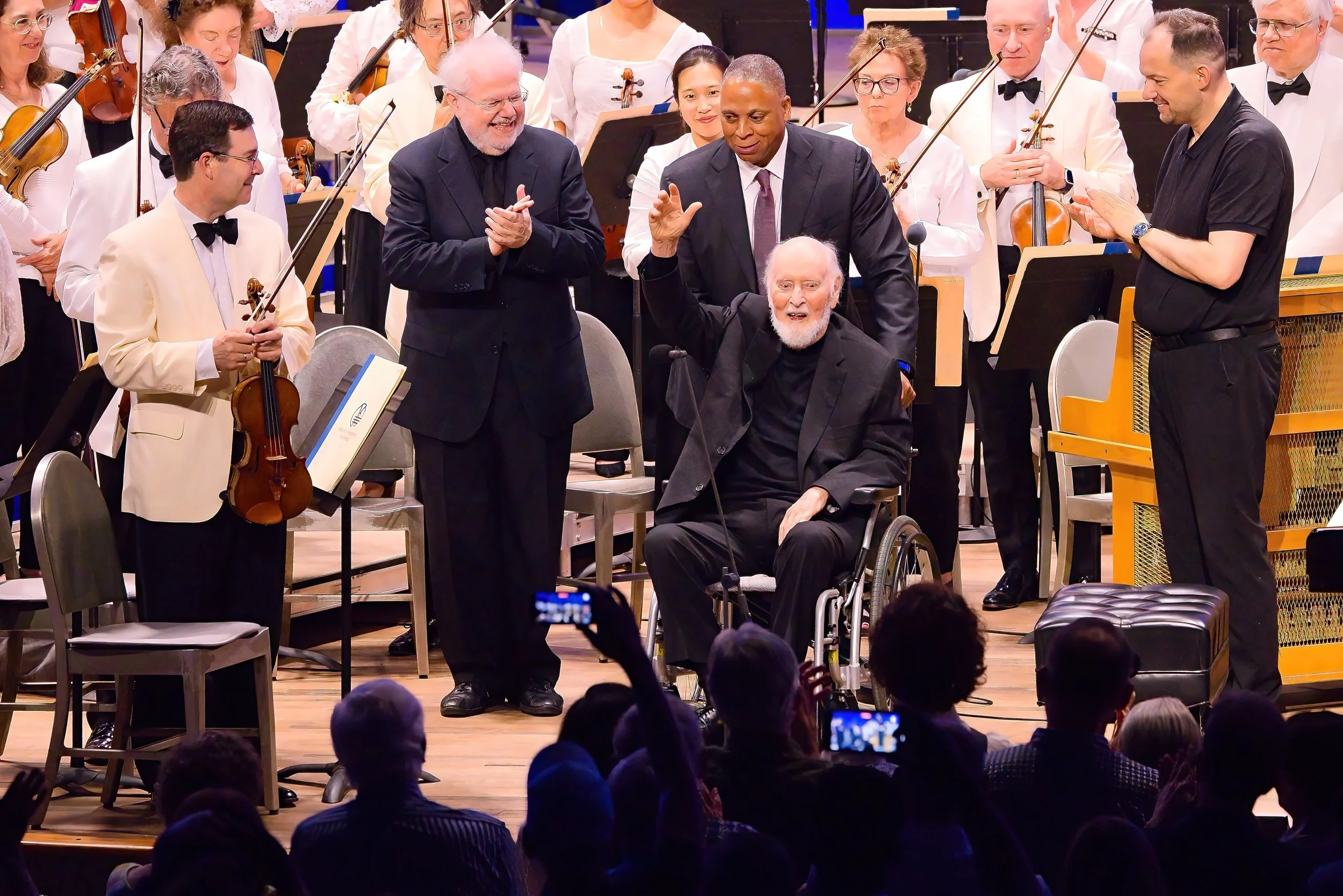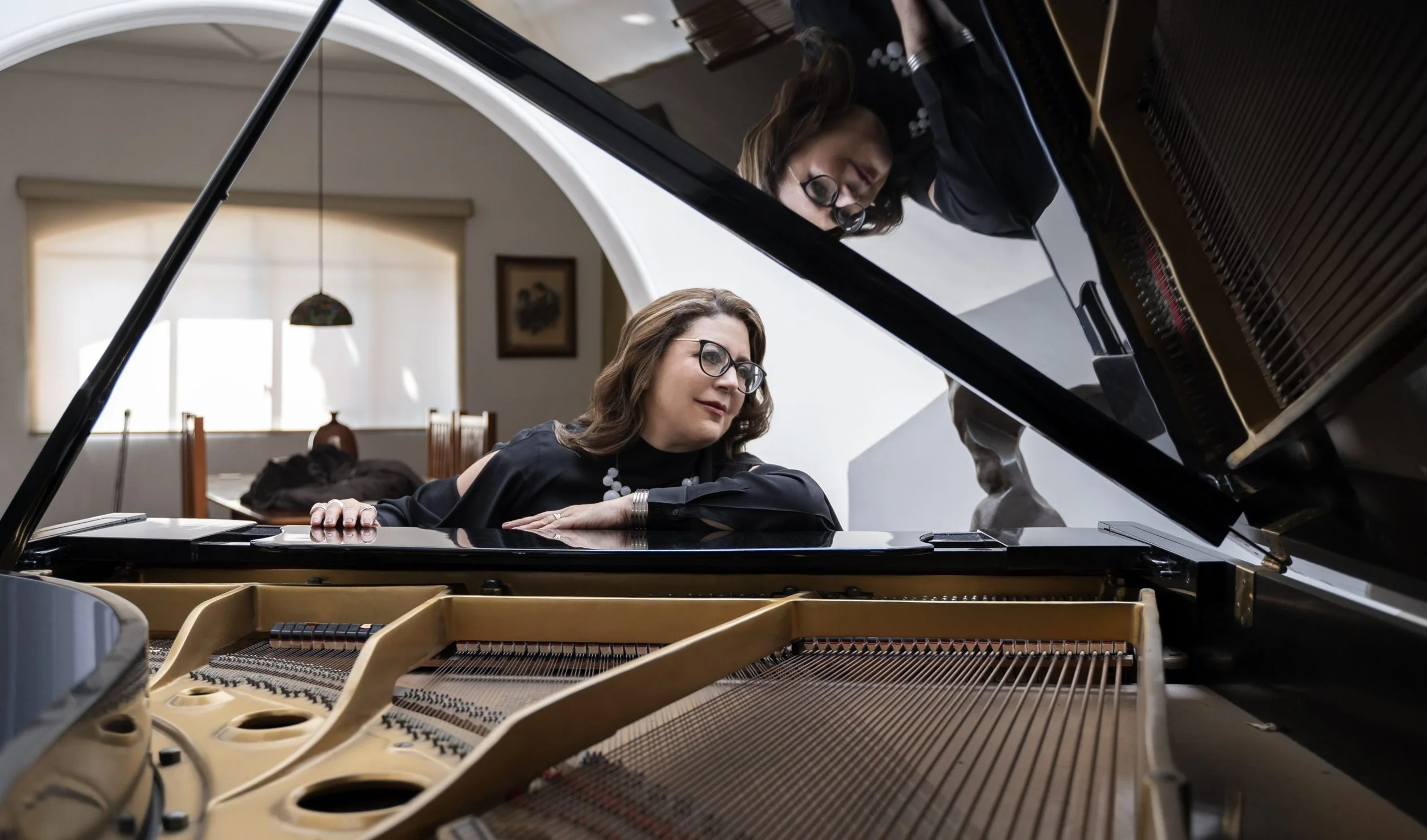Composer John Williams, with Emanuel Ax (left) and Andris Nelsons, acknowledges the audience after the premiere of his piano concerto July 26, 2025, in the Shed at Tanglewood. Hilary Scott photograph
The Festival of Contemporary Music at Tanglewood has become a traditional destination. I think of it as boot camp. Each festival gets organized differently; this summer, one curator, Mexican composer Gabriela Ortiz, chose everything.
She followed an instructional lineage, from Carlos Chávez (1899–1978) to his student Mario Lavista (1943–2021) to herself, born in 1964 and Lavista’s student. She sketched out a sort-of timeline of percussion in the classical form, via those three composers. The festival wasn’t didactic in any real way, but organized thus.
Composer Gabriela Ortiz. Mara Arteaga photograph
Ortiz gave props to her Mexican lineage (it’s amazing, from grandparents on down), but like most composers, she’s polymath: studied at the Conservatoire in Paris, in London as well besides Mexico City, and formed rewarding professional relationships with Dudamel through the LA Phil, multiple other major orchestras, and subsequently with the BSO, perhaps through the presence of CEO Chad Smith, formerly in LA.
Anyway, Ortiz fascinates. Almost all the music was professionally impractical—percussion set-ups dominated concert time. That’s FCM—a demonstration of someone’s ideas rather than a perfect program for fancy people. So fifteen minutes to set up a piece with at least 14 different instrumentalists—a piece that lasts four minutes?
FCM is the place for that. Decades-long Ortiz collaborators Tambuco, a Mexico City–based quartet of multi-percussionists, helped interpret. Apologetic diarist that I’ve become, I did not cover. Not enough energy. Ortiz deserved some critical description, and I’m sorry for that.
I missed the orchestral finale for FCM, but I did catch several BSO performances that weekend. Lang Lang played the second Saint-Saëns concerto, and was well suited for it.
John Williams’s piano concerto for Emanuel Ax proved an occasion for celebration. Everyone involved has a genetic connection to the BSO. The solo part—jazz inspired, each of the movements referencing some piano great—seemed the most developed, with lots of ideas, no doubt with Ax’s encouragement. There were orchestra solos as well—if I were note-taking I would remember. Also well developed.
The orchestra’s role in the concerto sounded undeveloped, and perhaps Williams might snazz it up later.
One last note to get the Mass Pike out of my head: I must miss Matthew Aucoin’s Music for New Bodies in Ozawa Hall this Thursday, and I’m venting about it. Peter Sellars’ direction, Jorie Graham’s poetry, Aucoin’s score. If you’re there, absorb it for me. Cheers.



